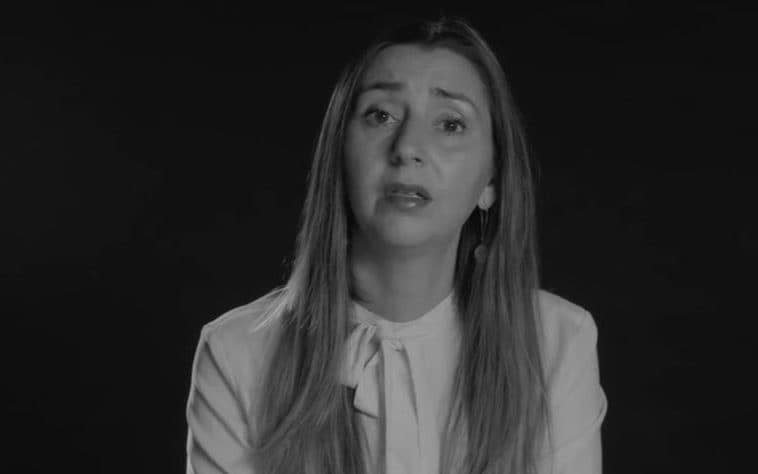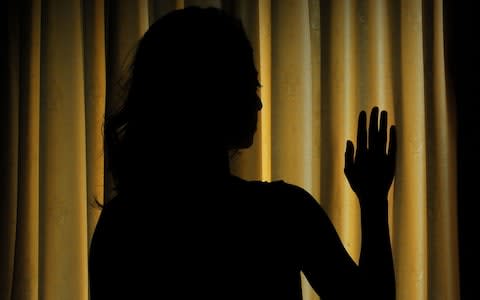'I thought working in the sex industry gave me control - I was wrong'

In a week-long collaboration with Real Women Real Stories, we publish a series of videos in which women share their personal tales of trauma; from rape to sex trafficking and racist bullying.
Some of the stories are painful. But all of them need to be heard.
In this powerful video, we hear from trafficking survivor Rachel Lloyd. The founder of GEMS (Girls Educational and Mentoring Services) - a US organisation designed to support girls and young women who have been forced into sexual exploitation and domestic trafficking - opens up about her own harrowing experiences.
Born in Dorset, Rachel moved to Germany as a teenager after being told she was a 'high risk' young person and has said, "turned my first trick aged 17."
Rachel says:
Public awareness of trafficking in the US has dramatically increased in the last few years, although many people's image of trafficking is still limited to a young white girl chained up in a cage, with duct tape covering her mouth, waiting to be rescued.
There's a huge disconnect between what the public imagines trafficking and commercial sexual exploitation to look like, and the realities of the young people who are actually being trafficked.
Last month marked my 20th year serving sexually exploited and domestically trafficked girls and women; 19 of those years as the founder and CEO of GEMS. We now help more than 400 girls and young women each year.
Over the years, I’ve seen huge progress and some tremendous setbacks in the fight against commercial sexual exploitation and trafficking.
I've fought for, and seen the language change from 'dirty girls' and 'teen hookers'.
I watched 12-year-olds in New York sentenced to two years in juvenile detention for an act of prostitution, when they couldn’t even legally consent to sex until they were 17.
I’ve advocated for clear changes so that individuals trafficked in the US would be afforded some of the same protections as their international counterparts.
In 2000, I saw the passage of the Trafficking Victims Protection Act (TVPA) which was created to address the international trafficking of children and adults for both labour and sex.
I advocated for and ultimately passed the Safe Harbor for Exploited Youth Act, the first state law in the country that recognised that children and youth were the victims not the criminals.
I worked with President Bush's administration, and was at the Clinton Global Initiative, smiling from ear to ear, when Obama became the first sitting president to address the issue of domestic trafficking - highlighting one of our survivors from GEMS.
When I’m dealing, in the moment, with girls and young women, I can’t ever remember feeling this scared for them
Most importantly I’ve watched programmes and organisations, critically those that are survivor led like GEMS, spring up across the country to serve victims and survivors. It’s been a massive shift since my early days in the US in 1997 and I’m proud to have played such a critical role in it all.
When I take the long view I realise how far we’ve come - and yet when I’m dealing, in the moment, with girls and young women, I can’t ever remember feeling this scared for them.
I feel powerless in the face of threats to their immigration status, cuts to housing, to public assistance, to food stamps. I worry about the rolling back of measures to protect the 40 per cent of our young people who identify as LGBTQ and the impact of travel bans. I feel anxious for young people with mental health issues.
I hear anger from the girls at policies they can’t control but that will soon impact their daily lives. I try to support them as sexual assault survivors who know all too well what it’s like to have men believe they can grab you whenever and wherever and reduce you to body parts.

I feel their pain as a woman and as a survivor who remembers what it’s like to not be believed and the sting when you realise that other women don’t believe your assault happened either - or if it did you must have deserved it.
I lie awake at night and wonder about when will achieve gender equality. Ten years? 20?
Trafficking will only proliferate as more and more families and children are vulnerable and made ‘at risk’. Victims will have even more reason to believe their pimps when they are told no one will listen to you, no one will care. And survivors lucky enough to get out will find themselves still trapped in systems that aren’t designed to break cycles of poverty, or to give equal opportunities.
We cannot end commercial sexual exploitation and trafficking, or even hope to make any type of dent in the problem if we continue to address it in a vacuum. We cannot pick and choose our social issues as if we’re at a buffet. And until we tackle that, we’ll continue to talk about ‘freedom from modern day slavery’ without recognising that for thousands of young women, there’s still a long way to go before they truly taste freedom.
To make a donation to this project please go to: https://www.patreon.com/ realwomenrealstories